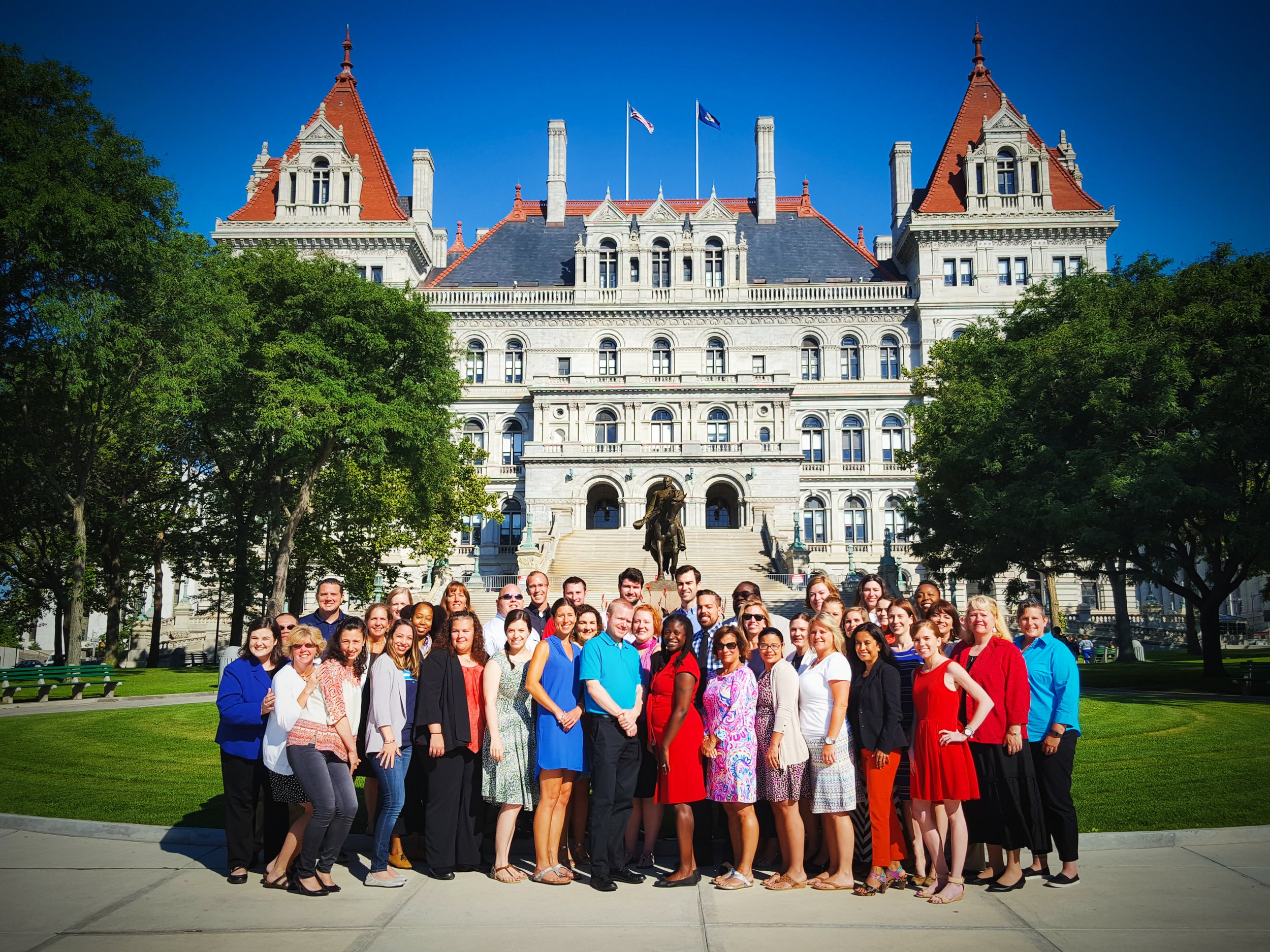Let expert educators decide how to evaluate teachers
Originally published by the Buffalo News.
New York State lawmakers recently approved a budget that gave the State Education Department until the end of June to redesign the teacher evaluation system. The bill requires the department to consult with “experts and practitioners in the field of education.”
I am willing to bet there are hundreds of qualified educators across the state who would jump at the opportunity to help with this process, and frankly, in other professions, it’s practitioners themselves who decide how to hold their peers accountable.
For the last eight months, in my role as manager of the New York Educator Voice Fellowship, I’ve had the honor of working with some of the best educators across the state. The educators in the fellowship have demonstrated their expertise, dedication to their profession and constructive and progressive perspectives on education policy – specifically on improving evaluations. Educators like them should be leading the work to redesign the teacher evaluation system.
Currently, state tests account for 20 percent, a local assessment approved by the district is another 20 percent and classroom observations account for the remaining 60 percent of a teacher’s score. Gov. Andrew Cuomo is frustrated by inflated evaluation scores, where less than 1 percent of teachers were rated ineffective, while many of our students are years behind where they should be. The governor has advocated for a stronger emphasis on state tests and rethinking who is responsible for observing teachers. Many teachers across the state have shared their ideas, too.
Pat Sprinkle, a high school social studies teacher in New York City and one of the teachers I work with in the fellowship, discussed some nuanced evaluation ideas in his recent blog post. Sprinkle suggests adding a student survey component to evaluations. “Student evaluations are an important way to measure teacher effectiveness and document student success,” he said.
Although some teachers may be scared of surveys at first, studies have shown that they actually depict a valid picture of what’s happening in a classroom. Teachers shouldn’t worry that surveys would determine whether or not students “like” them or their class. Surveys are designed to focus on what teachers do and on the learning environments they create.
Another teacher I work with, Bobson Wong, a high school math teacher in Queens, welcomes the call for accurate evaluations in his recent letter to the editor in the Queens Chronicle. He thinks our current evaluation system overlooks our most valuable resource – teachers themselves. Like Sprinkle, who thinks that teachers should be more involved in evaluating themselves and their colleagues, Wong suggests considering peer review programs similar to those in Toledo, Cincinnati and Montgomery County, Md.
Like many educators, Wong recognizes the faulty logic of holding an art, music or foreign language teacher accountable for student test scores from a different subject. Wong said, “Basing an art teacher’s rating on how well her students perform on the U.S. history Regents exam makes as much sense as evaluating Cuomo’s job performance based on the Massachusetts unemployment rate.”
Teachers of non-core subjects should have another mechanism to assess their students’ growth and mastery. Wong suggests using student portfolios, and other teachers in the state agree, and claim that evaluating teachers based on subjects they do not teach robs them of the opportunity to reflect and improve their practice.
In addition to student surveys and peer evaluation, having “outside observers” rate teachers is another idea up for discussion, and one that I’ve had positive experiences with in the past. I was a high school math teacher in Washington, D.C., in 2009 when the District of Columbia Public Schools implemented its new teacher evaluation system, IMPACT.
Under the new system, I received five classroom observations, two by a “master educator” from the district and three by a building administrator. My debrief discussions with master educators, who were former highly effective math teachers, were far more beneficial than my conversations with school administrators. My master educators could provide authentic, content-specific feedback on my instruction, and pull from their own teaching experiences as well as from their experiences observing other math teachers across the city. The district is constantly making improvements to its evaluation system and, although it’s still not perfect, it has been able to identify some of the best teachers in the city who have, in turn, been able to share resources and help coach new and developing educators.
Having an outsider evaluate teachers increases the likelihood that the observer is an expert in the particular subject area – we can’t expect a building administrator to be a master of everything – and decreases the likelihood that biases affect teachers’ scores.
Good teachers want to be held accountable. Most teachers I have worked with crave authentic feedback and want to be commended when their students succeed and supported when their students fall behind.
The key is to ensure that the evaluation tool is fair and used primarily for growth and development. We need to call on expert teachers like Sprinkle, Wong and others across the state to put their differences aside and their heads together to design an evaluation system that makes sense for teachers and, more importantly, improves outcomes for kids.
